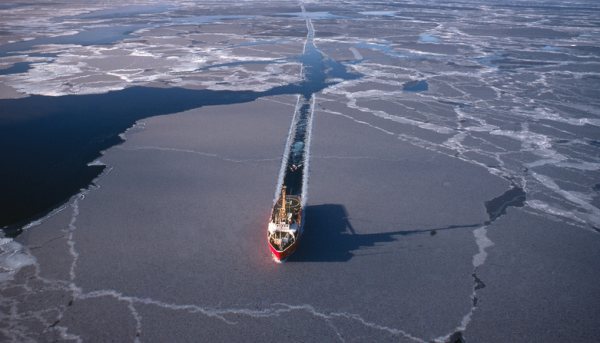|

THE Clean Arctic Alliance urged member states to reduce black carbon emissions as the UN's International Maritime Organisation's Marine Environment Protection Committee (IMO, MEPC 82) met in London.
This involves as ban the use of scrubbers after 2023 was the fourth warmest Arctic year on record, reports Italy's Il Nautilus journal.
Meanwhile a recent report shows Arctic Sea ice may have reached the seventh lowest level on the satellite record, said the report.
According to a paper in Geophysical Research Letters, there has been a significant 24 per cent reduction in Arctic sea ice reflective capacity - due in part to black carbon from gas flaring and other sources - including shipping.
"During MEPC 82 the IMO must finally commit to developing new regulations which would identify fuels suitable for use by international shipping in the polar region, which would deliver an immediate fuel-based reduction in black carbon emissions which impact the Arctic", said Dr Sian Prior, lead advisor to the Clean Arctic Alliance.
"With a changing Arctic having detrimental impacts on weather systems around the world, and after more than a decade of deliberation, it is time governments finally started to regulate emissions of short-lived climate forcers such as black carbon from international shipping," she said.
"Even though this committee has met 21 times in the last decade and a half since agreeing to address emissions of black carbon, the shipping sector continues to emit climate forcing pollutants, without any regulation," she said.
"Even worse, emissions of black carbon from ships sailing in and near to the Arctic, which have a disproportionate impact when the particles settle onto snow and ice, have increased by 37 per cent in 10 years. The downward trend in Arctic sea ice since the early 1980s shows that we have lost nearly 10 per cent of the sea extent every decade, which during the month of August, equates to an area roughly six times the size of France."
https://www.shippingazette.com/news?news_id=9241000000105
|